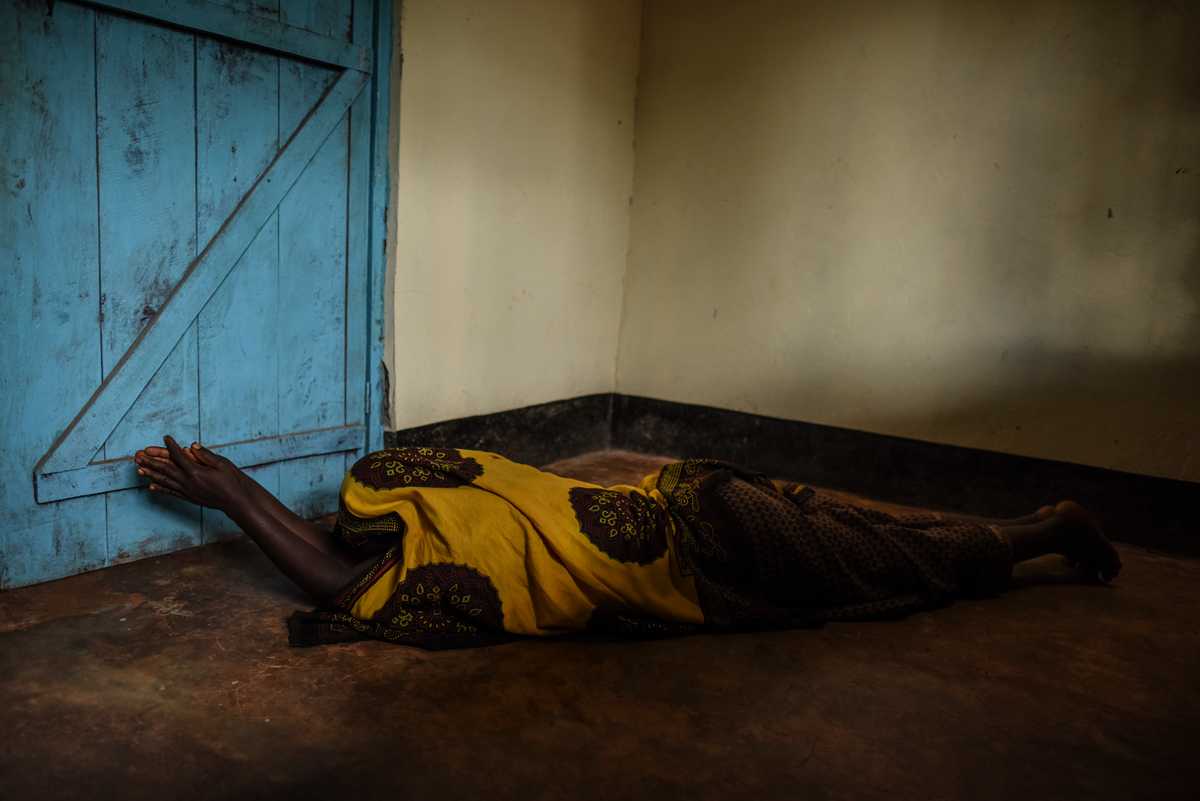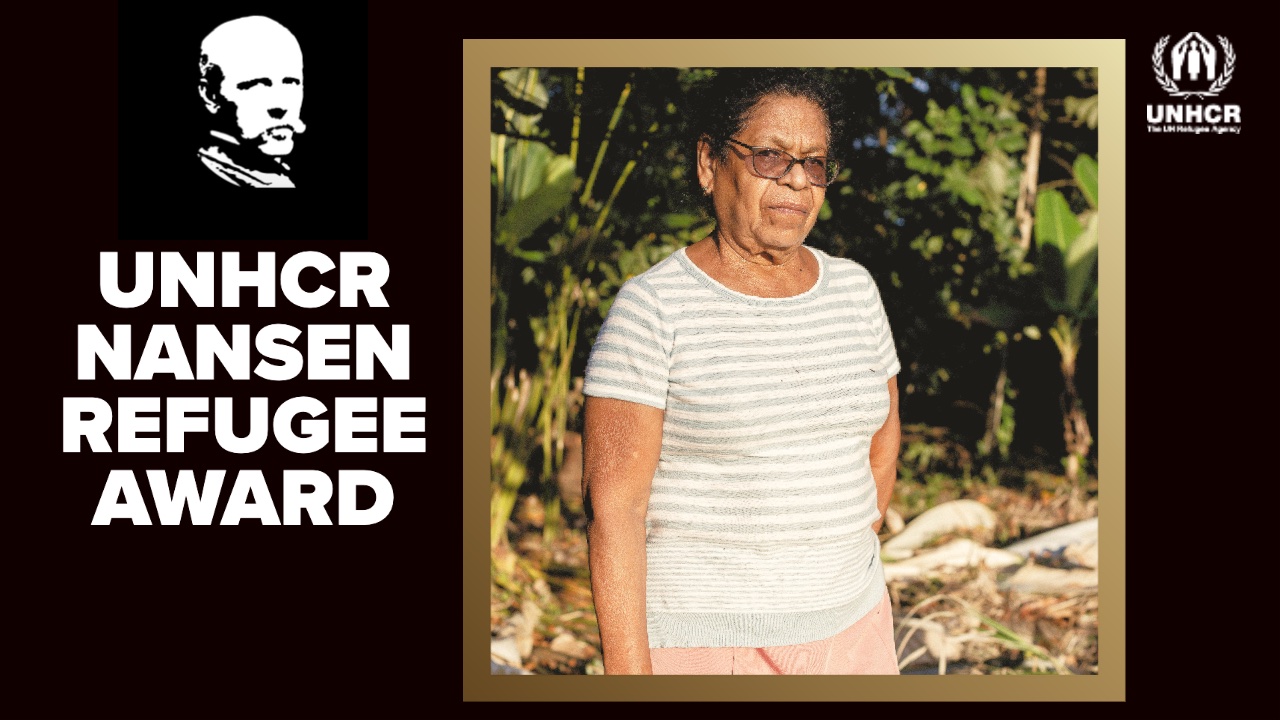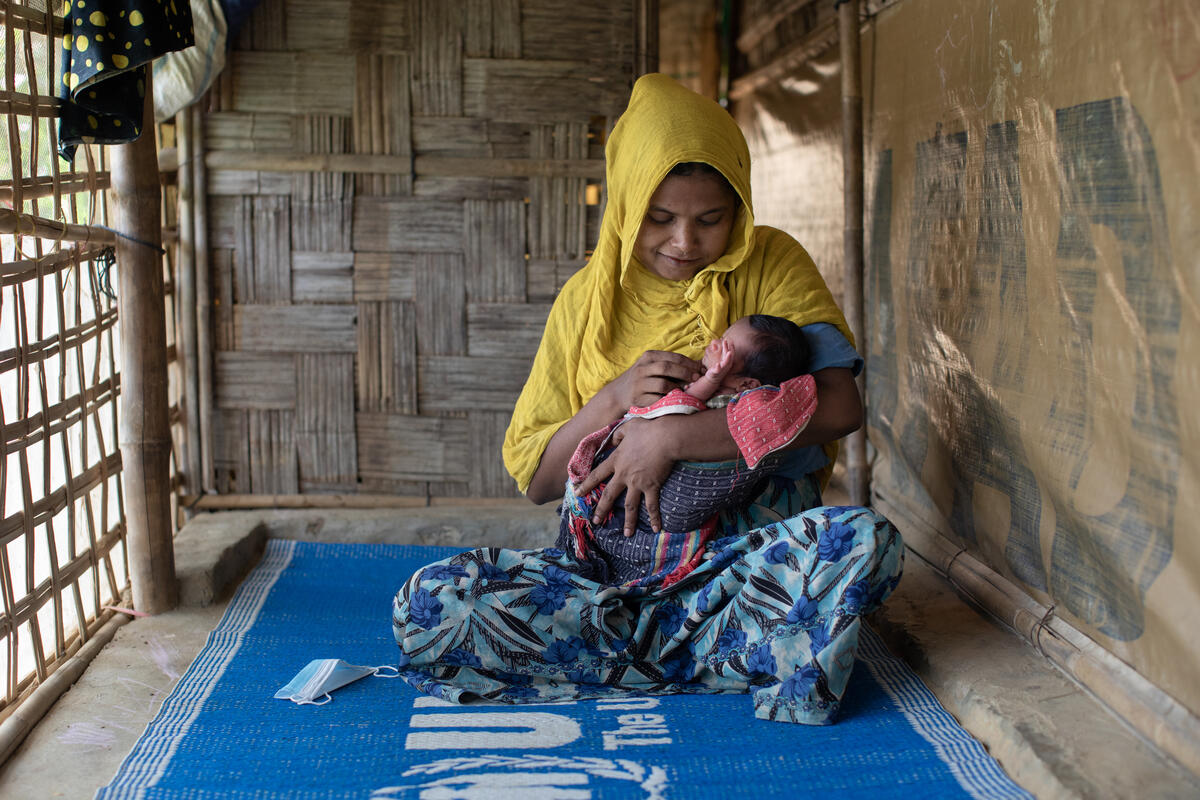Running from rape in Burundi

Running from rape in Burundi
Even before she speaks, the violence that has torn through Burundi is legible on Nicole’s skin. The stab mark to her belly; the inch-long gash to her neck and the raisin-shaped scar on her scalp from other knife blows. Indelible rope burns mark her arms and legs, and some of her teeth are gone, punched out.
Her trip through hell began with the daily, door-to-door rounds of the thuggish ruling party militia, the Imbonerakure. She saw what happened when her landlord was unable to pay the 10,000 Burundian francs (US$6.50) demanded by militiamen toting guns and machetes. It was a fatal mistake.
“We were taken to the river the next day to see him,” she said, stopping to gulp a glass of water. “He had been slashed on the head and stabbed in the sides and the belly. His wife had her breasts cut off and was cut open from her genitals to head,” she adds, between gasps. “The children just had their throats cut.”
At that moment, Nicole* knew she had to gather up her three young sons and run. They made it almost to the border with Tanzania when a band of policemen, Imbonerakure and local officials caught them. Their orders were “to kill or beat anyone trying to cross,” she said.
With the local prison full, she and about 60 others were taken to a nearby detention centre. There, “the procedure was that you had to be severely beaten” for trying to leave Burundi, she said. “There was even a woman who was carrying a baby on her back and they beat her until it died,” she recalled, her faraway gaze dropping to the floor.
Police officers divided people by gender and placed them in groups of eight, tied them by the arms and legs and made them lie down, she recalled. Five officers ran across the line, beating people with batons and stamping their feet.
Nicole was taken out early on in the ordeal and placed in a cell by herself. She passed out, waking up later with a policeman raping her.
“I was shouting and struggling, but he did what he wanted,” she said, her trembling fingers struggling to catch the tears rolling down her cheeks. She recalled other officers passing by and walking away.
“I was shouting and struggling, but he did what he wanted.”
Nicole is among more than 137,000 Burundians who have fled to neighbouring Tanzania since President Pierre Nkurunziza announced just over a year ago that he would run for a third term. The announcement sparked a wave of protests, security crackdowns and militia violence.
From the harrowing accounts of massacres, torture and imprisonment recounted by those who have fled, a disturbing pattern of rape and sexual violence is emerging.
Survivors, including Nicole, describe rape being used as a punishment at checkpoints within Burundi and at its borders. Some who spoke to UNHCR, the UN Refugee Agency, said their rapists had accused them of associating with the wrong political party, or had singled them out because of their background or the place they came from.
Another woman, one of nine interviewed for this story, received an ultimatum – “be raped or die” – at a checkpoint next to a “hillside with many bodies,” but was only stripped of her possessions. Three said they were gang-raped after seeing their husbands or father – all colonels in the army – killed.

Women are not the only ones targeted for rape. Davide,* a slight man with wide eyes and cheekbones, is one of two male refugees who agreed to share their stories. A student, he said he was picked on by some of his classmates for refusing to join the Imbonerakure.
When the cajoling by fellow students turned more threatening, as he “knew too many secrets” about their night-time killing sprees in Makamba province, he ignored them. He thought it was a joke. They were his friends.
One day, they grabbed him on the street and took him to a big house where they said many others were being kept. He was handcuffed at all times, and three men would come and rape him, while others watched.
“They would say: ‘You won’t join us, so we will show no forgiveness,’ ” he said.
After three weeks, other friends in the Imbonerakure found out what his punishment entailed. They took pity on him and arranged for his escape.
Women are not the only ones targeted for rape.
Davide is fearful of people finding out about his ordeal, although he considers his attackers “less than human.” As he waits to be reunited with his girlfriend in Tanzania, he is hopeful that she will be understanding. “I love her, so I can tell her anything,” he said, with a shy smile.
Renate Frech, a UNHCR senior protection officer working in the Tanzania refugee camps, said the reported cases of sexual violence might only “present a small number of the reality,” particularly for men.
“We have to break the wall of silence regarding male survivors of sexual violence,” said Frech. “Whereas we have hardly any reports, we are concerned that men might also be targeted, in particular when being detained,” she added, emphasizing the need for more resources to provide everyone services.
Survivors in Tanzania are still dealing with the serious consequences from assaults. Some women in the camp are giving birth to babies born of rape. Some have been rejected by their husbands, who cite infidelity, or fears of being infected with HIV.
One mother who was raped by two men related how they slit her five-year-old son’s throat, but left her husband alive. Now pregnant, she wants to believe that the baby growing inside her is her husband’s.
UNHCR and its partners are trying to provide new arrivals who have suffered sexual violence with prompt medical treatment, counselling and legal services.
Services extend to those who’ve been attacked after fleeing as well. International Rescue Committee initiatives in Tanzanian camps have provided services to 1,759 survivors of sexual and gender-based violence since April 2015.
Reaching survivors is still a challenge, as a fear of stigma stops many people from coming forward. With only 30 per cent of the funding it needs to help those displaced by the Burundi crisis, UNHCR and its partners are struggling to provide everyone with more than life-saving services, such as food, water and shelter.
“It’s hard to recover from the memories.”
Long-term programs such as specialized counselling, education and skills training, which are crucial in preventing and treating sexual violence, have fallen by the wayside.
“Wherever you turn, you have the impact of a lack of funding,” said Frech.
UNHCR and its partners are giving women solar lanterns, but the camp still needs more lighting and latrines nearer to homes to reduce the walk for women – especially at night – and keep them safer on the move. To reduce attacks on women and girls walking up to 15 kilometres from the camp to gather firewood, aid workers are helping women build energy-saving stoves, as well as providing some firewood and tools for chopping it.
One 19-year-old woman, whose rapists came to her home and killed her parents, is trying to rebuild her life as a refugee in Tanzania.
“It’s hard to recover from the memories,” she said. The young woman remains haunted by what happened at home. “This place doesn’t let you forget.”
*Names changed for protection reasons

















